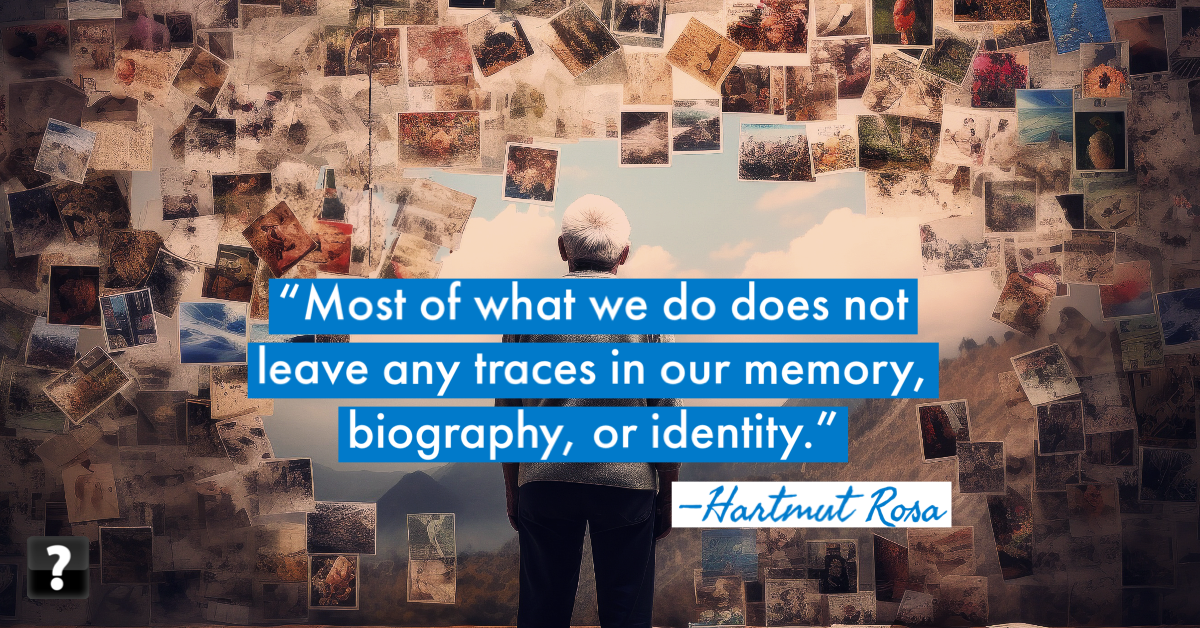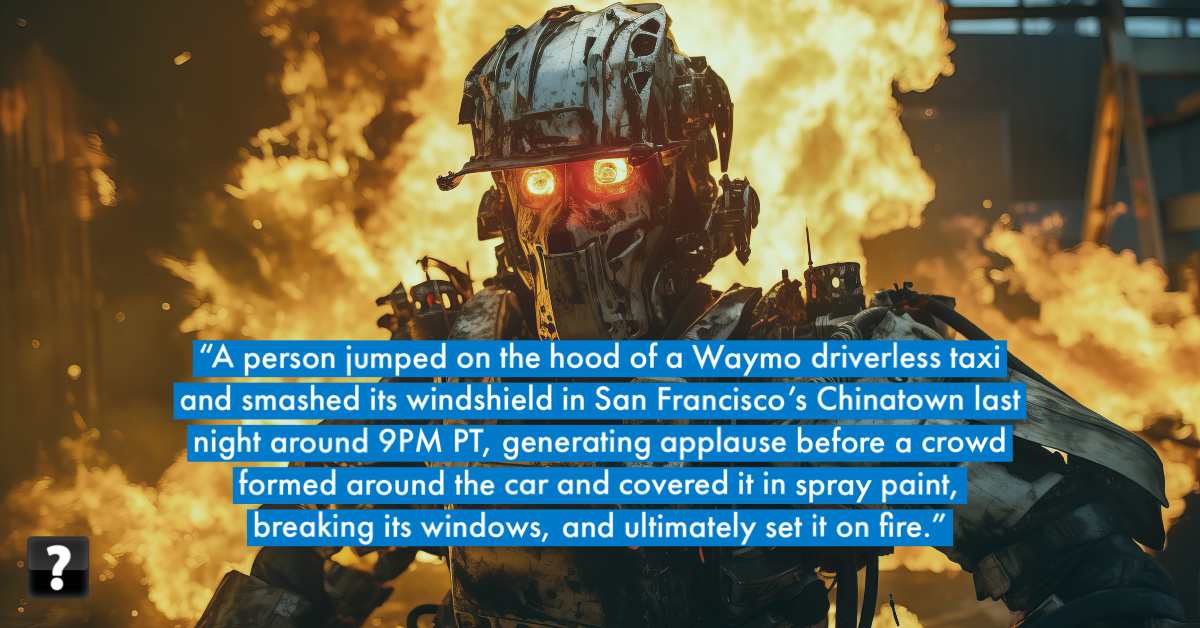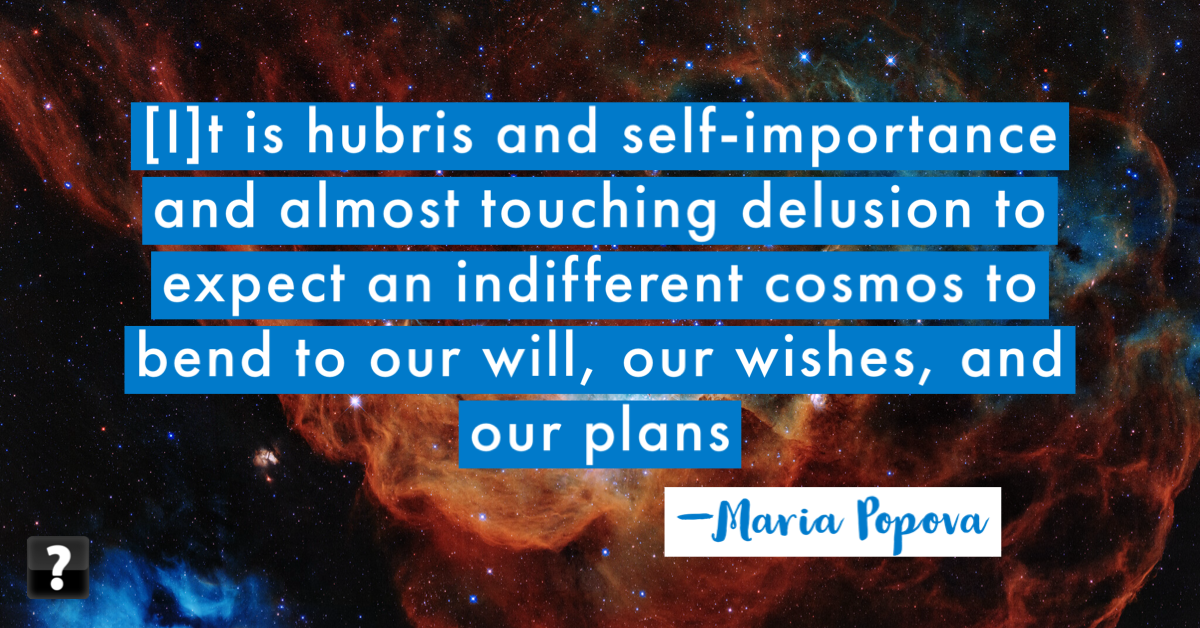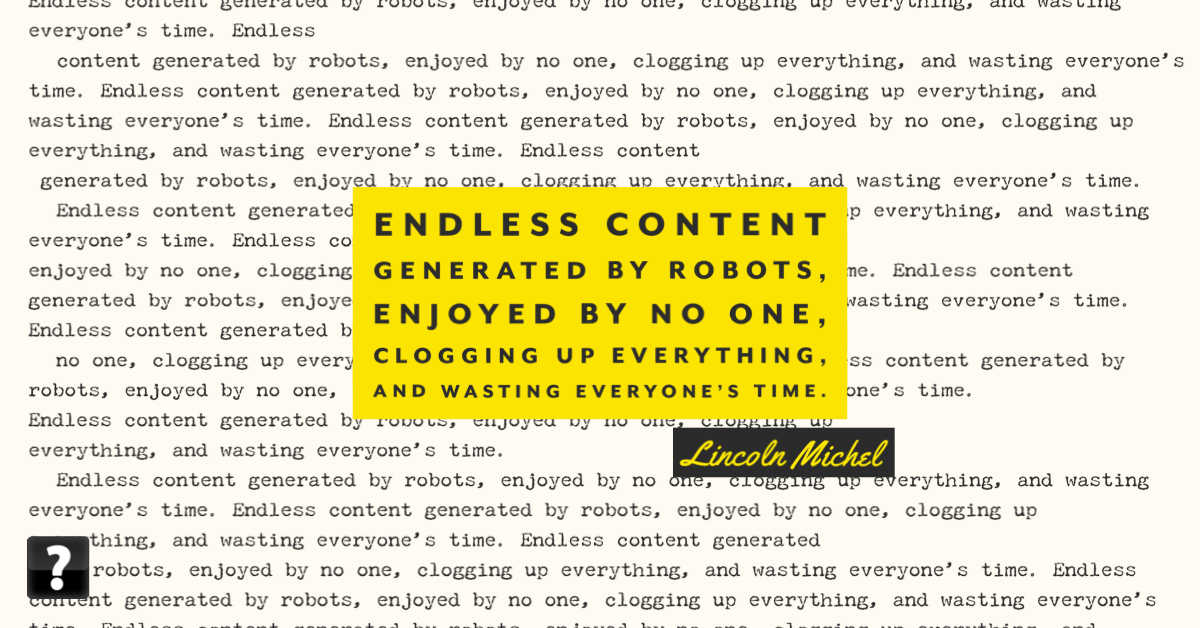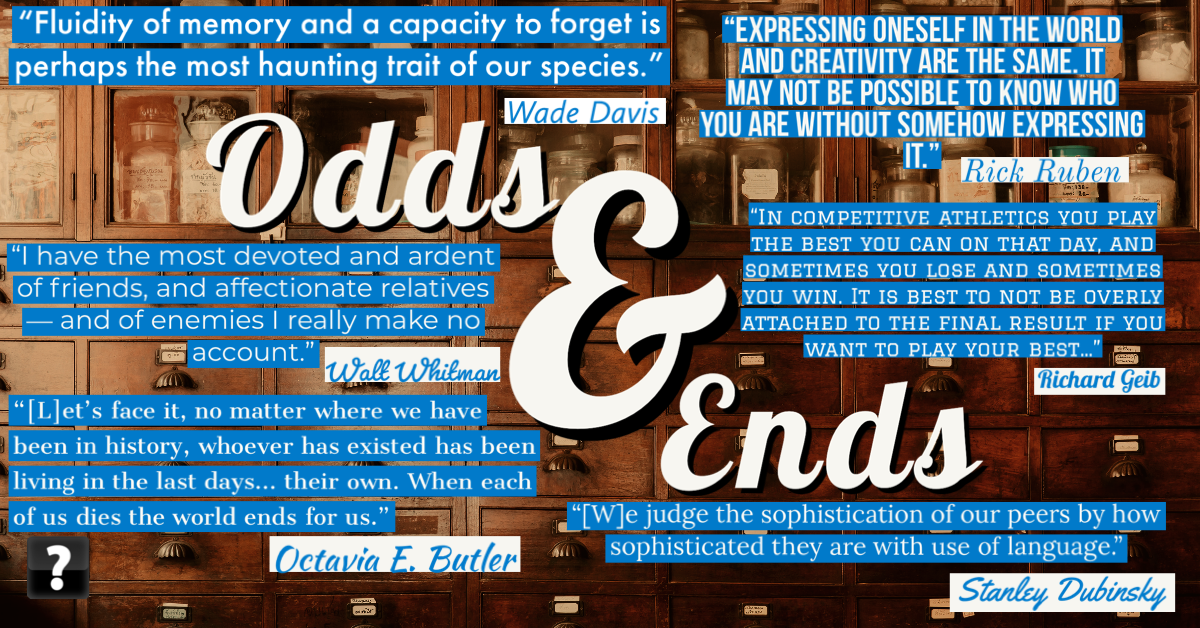Most of what we do does not leave any traces in our memory, biography, or identity
Hartmut Rosa, interview with Claudio Gallo, published in LA Review of Books [lareviewofbooks.org], June 2015
I came across this quote in Productivity: Are We Okay? [youtube.com], a video by Wisecrack discussing if the drive for productivity and “hustle culture” is making us (or at least most of us) worse off: overstressed, depressed and burn out.
Almost nothing you do on a daily basis is going to be a core memory. Be it in the pursuit of work —be it your job or side hustle— or keeping up with the Joneses, or “bettering” yourself by reading all the latest and must read books, or whatever. In short “self optimization” or “grinding”.
I don’t grind, or spend effort self optimizing. In my “free time” I write this blog, read, watch movies, practice my photography, and do a little exercise. Or at least these are the things I define as my hobbies but finding the time to do any of that when I have two teenage kids… And I long ago gave up on achieving all of it, something had to give. So a lot of that lost out to the kids, they are the most important part.
Photography probably suffered the most. I used to go out for the express purpose of taking photos with my fancy camera, but now my camera is almost exclusively a thing I use on holiday, and then I have to balance between being with my family and taking good photos… being with the family wins, so my travel photos are, meh.
Confusion also suffered. The pace of posting slowed way down when my kids were born. Etc. etc. Focusing on the kids, even if it meant doing less of my hobbies makes sense examined in the spirit of the quote: my kids are going to leave the biggest traces on my “memory, biography and identity.” This is why I had kids, while they don’t define me, they are integal to my definition of self.
In the past few years, as the girls have gotten older, I have had more time, and started to filling that time by returning to other hobbies. I read more (though you wouldn’t know that from Confusion, I have not posted many book reviews in the past decade, I have in fact read a lot in the past few years, mostly focused on working through the complete corpus of a number of writers short stories: Turgenev, Chekov, Nabokov, Hemingway, O’Conner and more.) Speaking of Confusion, I have posted more at a faster pace in the past few years. I spend more time going out with my friends, not just with my family. I’ve also watched a lot more movies and TV shows —that aren’t Disney or Pixar or the like— in the past few years.
All of this is in the service of doing more things I enjoy as my kids don’t take up so much of my time, and inevitably want to spend less of their time with me. In, short, I’ve been doing more things that make me happy. What I have not been doing is “hustling”; I don’t spend excessive hours working outside of “normal work hours”; something that I am proud of, especially as I transitioned to working at home when COVID lockdowns started and I still work from home more than 90 percent of the time. But I don’t feel work has invaded my home like some people do. I’m not a workaholic.
But it was not always so. In my first jobs I spent almost all my time working. I remember one stretch, working on a project, where I worked, in the office, more then 365 days straight; more than a year. I did not take a day off, I worked on every Saturday and Sunday, I worked on Christmas, Thanksgiving, New Year’s and every other holiday, no sick days. I arrived at the office before 7AM and left at 9, 10 or 11PM. Saturday morning my boss would call me at 8AM and ask me what time I was going to be in. “11”. It’s not that I didn’t do other things, I did meet up with friends, watch movies and TV and so forth. It’s just that these things were limited to just a few hours a week.
I didn’t resent my boss for this, as stressful and tiring as all this was, I was into it. At that time we were doing something that felt like it could really be impacting the world, something that would be part of my “memory, biography and identity”. In some small sense I was part of changing the world, a tiny part but I was there. We were part of the early adoption of the mobile phone, the rise of SMS. We were not responsible for it, but we played an important role in making SMS work in the US.
All of that work and hustle paid off, it was a key part of how I ended up in Singapore, met my wife, and so forth. So it was worth it, I enjoyed it. But as I moved on to other jobs, the sense of changing the world wasn’t there. Maybe it was just getting older, or perhaps it’s better to say, maybe it was youthful optimism that I thought I was ever helping to change the world… In any case, I decided work was not how I defined myself.
Many of the other people at this particular job worked long hours. I’m not sure anyone was a crazy as me during that project, at least not for that long but many people worked longs hours. It was a startup, and that was startup culture. But not everyone. There were a couple of people, two guys specifically, who were at their desk at 9AM and went home at 5 or, latest, 5:30PM. A lot of us made jokes about them. It was never mean spirited or anything but it was a running joke about their commitment to work.
Maybe the rest of us were all victims of American Capitalism, selling our souls to the company. Maybe it was these two guys who had it figured out. We seem to be in a bit of a backlash against the “work defines” you and “find fulfillment in your work” mentality of the 90’s and 2000’s. I any case I think that today I’m more like those two guys than the workaholic I was back then. It’s not that I’m some sort of strict 9-to-5’er, some days I start at 8, some days I end at 7. During specific period I work late nights, but only as the exception and when it’s justified.
I work in the modern tech-comany office, meaning video calls, emails and instant messaging. Work is what happens between these interruptions but these interruptions are also work. When I first moved to Singapore it was the height of the Blackberry craze. I had a crackberry, I fell asleep with it in my hand, waiting for then next email. And I still answer emails outside office hours, usually in a burst just before bed. But I reserved the right, and exercise the right, to not respond to email instantly; to not check and reply to office instance messaging, and don’t respond to meeting invites outside of my office hours. I may attend meetings if I think there is really a reason to be doing them outside of office hours; deadlines we can’t change or time zones meaning someone is going to be working overtime, etc. This drives the personal assistants of some of my VPs crazy, they are always chasing me by email and instant message to make sure I “accept the meeting” but I reserve the right to not respond to or attend any meeting set outside my work hours. I can get away from this because I get my work done, I do attend those things that are truly important and I do quality work. I guess not everyone has the privilege to push back against work-creep in this way, so I’m grateful I can.
I’m rambling a bit. All of this is to say that this quote struck me, I like it. It’s similar to, but deeper than, “don’t sweat the small stuff”. I think people should take it to heart. If work make you happy then by all means devote yourself to it, and most of us need to work to feed and cloth ourselves, but forget to spend time on those things that will leave traces in your memory, biography, and identity.

